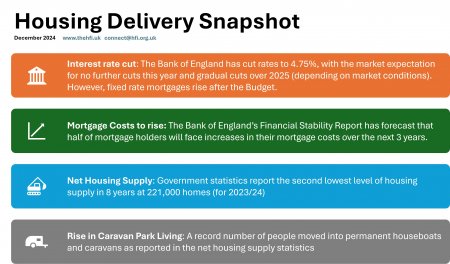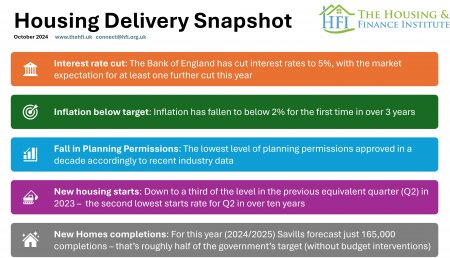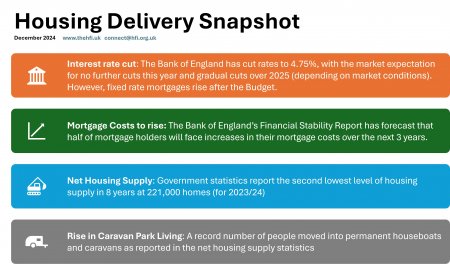

15 NOV 2017
HFi Today, Better Connections
- Better Connections: Housing Infrastructure Recommendations
- 'The Housing Problem in London' Launch
- What innovation is required to build more homes?
- Book Now for Autumn Budget Special - 29 November
Keep a Look Out for Housing Supply Statistics
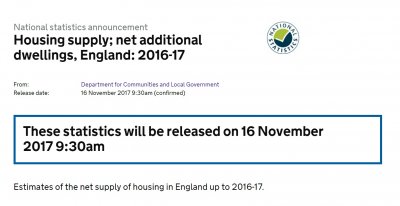
Better Connections: housing infrastructure recommendations
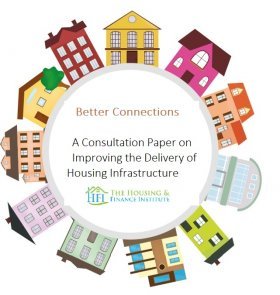
Yesterday, we released our recommendations report for the Housing Infrastructure Pilot for consultation. It follows a six-month government backed pilot research programme which brought together key players from private and public sectors. The research programme was launched in response to evidence in previous industry based research 'How to Build More Homes, Faster' that utilities, in particular water companies, were hampering the ability of housebuilders to build more homes.
The 'Better Connections' paper has been submitted to the Government in advance of the Autumn Budget and it sets out an eight point plan to get Britain building infrastructure in the right places and at the right time in order to support the housebuilding industry.
We are calling on the Chancellor to introduce new Utility Direction Powers in this month's Budget, in order to force utility companies to deliver connections to new homes on time. As well as a new housing innovation fund to promote better and different ways of addressing the housing crisis - and calling for housing to be included as its own national infrastructure priority.
The report also calls for more transparency about what homes are being built and when, plus new independent arbitrators to bridge the gap between developers and utility companies.
The paper was well covered in the national and trade press. Click to read the coverage in The Sun and Inside Housing.
You can download 'Better Connections' here.
'The Housing Problem in London' Launch
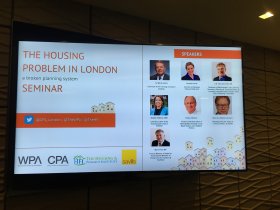
Recently, we launched our paper - 'The Housing Problem in London: A Broken Planning System' - written by our Chairman, Sir Mark Boleat, former political leader at the City of London Corporation. The event was hosted in partnership with WPA, CPA and Savills.
The paper sets out a range of proposals to radically increase the delivery of new housing in the capital.
The paper sets out a ten-point plan to get London building again. There needs to be:
- An evidence-based debate and recognition that there are trade-offs.
- Recognition that the problem will not be solved by building on brownfield land alone.
- Recognition that the higher the tax on house building through planning obligations the fewer houses will be built. 30 per cent of a large number can be much higher than 50 per cent of a small number.
- A change of policy towards land use, including the Green Belt, and permitting higher densities.
- Strong penalties on public sector bodies that fail to release surplus land.
- Planning conditions to be reduced significantly, costed and deemed to be discharged within seven days of certification by the developer, unless the local authority has clear evidence that the conditions have not been complied with.
- Ensuring that planning decisions in local authorities are joined-up with wider policy objectives.
- Planning decisions should be taken by relatively small panels, who have received appropriate training, and representatives of an area in which a development would take place should be excluded from voting on that decision.
- Simplification of the Community Infrastructure Levy and S.106 requirements particularly for social housing.
- Political leadership in individual local authorities, without which the problem will never be solved and which is a pre-requisite for addressing the other issues.

Speakers at the launch were:
- Nick de Lotbiniere – Planning Director (Head of Central London) at Savills
- [Chair] Sir Mark Boleat, Deputy Chairman of the City of London's Policy & Resources Committee and Chairman of The Housing and Finance Institute
- Natalie Elphicke OBE, Chief Executive, Housing and Finance Institute
- Hannah David – Director of Planning Futures think tank
- Cllr Tony Devenish AM, Chairman of Westminster City Council's Business, Planning & Transport Policy & Scrutiny Committee and member of the GLA's Planning Committee
- Brian Johnson, former Chief Executive of Metropolitan Housing Trust, Moat Homes and CityWest Homes
- Mark Prisk MP, former Minister of State for Housing

Natalie and Sir Mark introduced the event and the report respectively. With Sir Mark asking the question "Where is all this brownfield land to build on that is viable?"
Mark Prisk MP gave us the perspective of a Member of Parliament and as a former Housing Minister. He called for an evidenced based approach to housing. And said: "How to build more homes? Release public sector land and have fixed planning expectations, not individual settlements."

Tony Devenish said that to build more homes, political leadership is key. He also argued that we need more small builders, and told developers to just get on with it.
Brian Johnson called for standardised section 106 and CIL settlements, and a need to understand risk appetite drivers as well as labour and skills.
Hannah David quoted research by Planning Futures which shows that leadership, support and investment in planning teams is critical to building ore homes.
As well as launching 'The Housing Problem in London' we also launched our 'Quick Guide to the Green Belt' which supplemented Sir Mark's paper.
This guide helps to explain the principles and actions that are occurring across the country with land set aside as green belt, as well as addressing common misunderstandings.
The report was launched exclusively on Inside Housing, accompanying a comment piece by our Chief Executive, Natalie Elphicke. Click here to read the article.
You can download 'A Quick Guide to the Green Belt' here.
What innovation is required to build more homes?

Our Chief Executive, Natalie Elphicke, has recently written an opinion article for 24Housing about what innovation is required to build more homes.
Natalie writes that there are individual companies, housing associations and councils who have the appetite and commitment to do much more. However, there is not a universal or uniform capacity or capability to effect a further step change to another 100,000 homes a year through existing industry practices alone or a 'one size fits all' approach. But more can be done, two examples are in the delivery of manufacturing and harnessing private finance.
Click here to read the article in full.
Book Now for Autumn Budget Special - 29th November

There are a few spaces still available for our next business breakfast, which will be held on the 29th November between 8.30-10.00am at Bevan Brittan, located at Fleet Place House, 2 Fleet Place, London EC4M 7RF.
As the budget takes place on the 22nd November. This breakfast will be an autumn budget special looking at the impact of the budget on housing markets.
Booking is free but places are going fast, to reserve your place email: events@thehfi.com
May 2025 Housing Delivery Snapshot
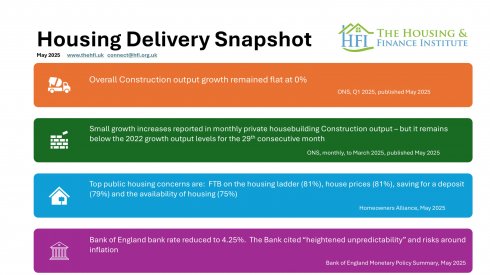
March 2025 Housing Delivery Snapshot
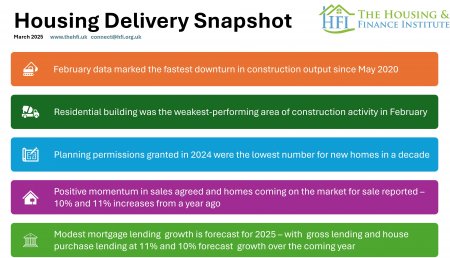
January 2025 Housing Delivery Snapshot

December 2024
